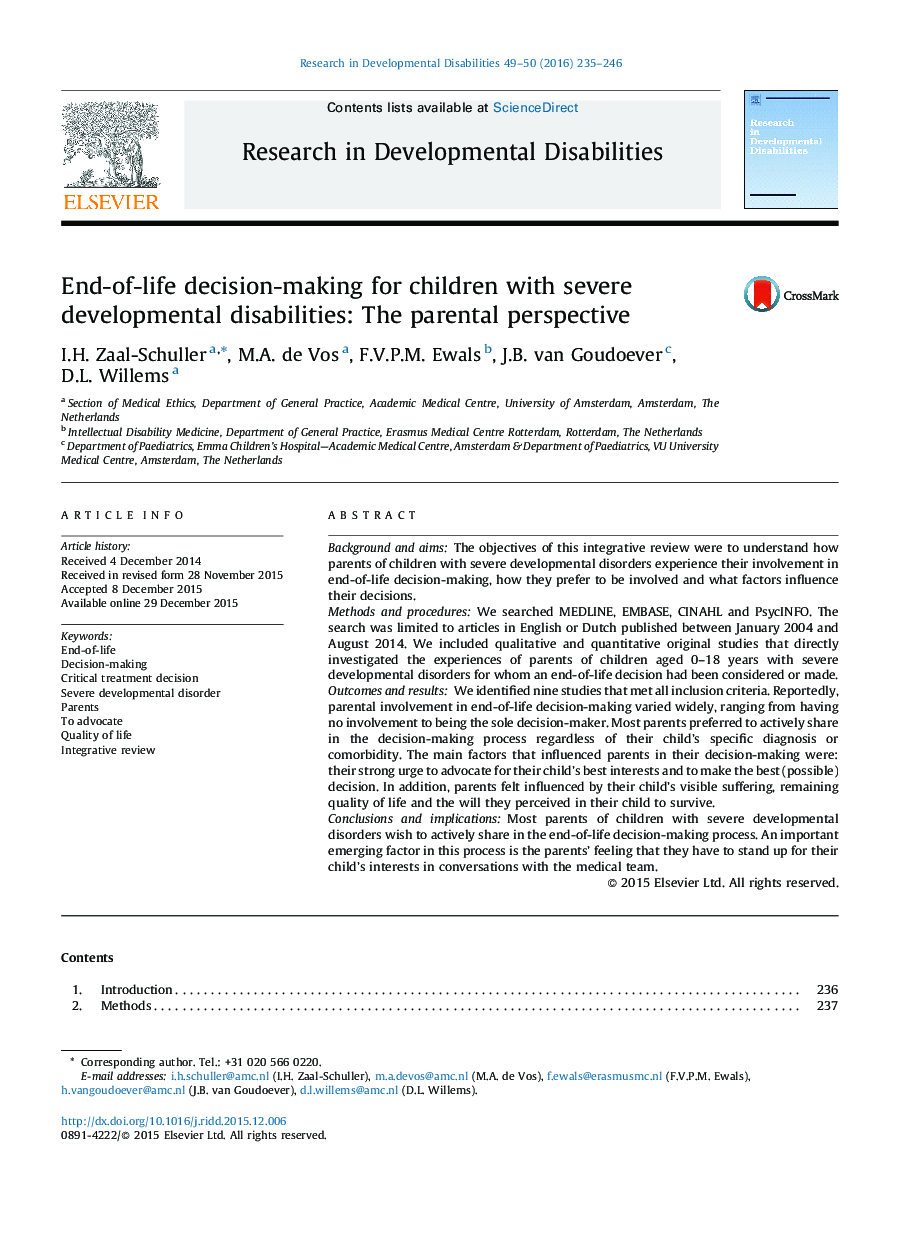| کد مقاله | کد نشریه | سال انتشار | مقاله انگلیسی | نسخه تمام متن |
|---|---|---|---|---|
| 371059 | 621895 | 2016 | 12 صفحه PDF | دانلود رایگان |
• This review describes experiences of parents of disabled children regarding end-of-life decisions.
• An electronic database search resulted in nine eligible studies.
• The experiences in end-of-life decision making of parents varied widely.
• The majority of parents wish to actively share in the decision-making process.
• Main guiding factors were: physical suffering, quality of life and will to survive.
Background and aimsThe objectives of this integrative review were to understand how parents of children with severe developmental disorders experience their involvement in end-of-life decision-making, how they prefer to be involved and what factors influence their decisions.Methods and proceduresWe searched MEDLINE, EMBASE, CINAHL and PsycINFO. The search was limited to articles in English or Dutch published between January 2004 and August 2014. We included qualitative and quantitative original studies that directly investigated the experiences of parents of children aged 0–18 years with severe developmental disorders for whom an end-of-life decision had been considered or made.Outcomes and resultsWe identified nine studies that met all inclusion criteria. Reportedly, parental involvement in end-of-life decision-making varied widely, ranging from having no involvement to being the sole decision-maker. Most parents preferred to actively share in the decision-making process regardless of their child's specific diagnosis or comorbidity. The main factors that influenced parents in their decision-making were: their strong urge to advocate for their child's best interests and to make the best (possible) decision. In addition, parents felt influenced by their child's visible suffering, remaining quality of life and the will they perceived in their child to survive.Conclusions and implicationsMost parents of children with severe developmental disorders wish to actively share in the end-of-life decision-making process. An important emerging factor in this process is the parents’ feeling that they have to stand up for their child's interests in conversations with the medical team.
Journal: Research in Developmental Disabilities - Volumes 49–50, February–March 2016, Pages 235–246
